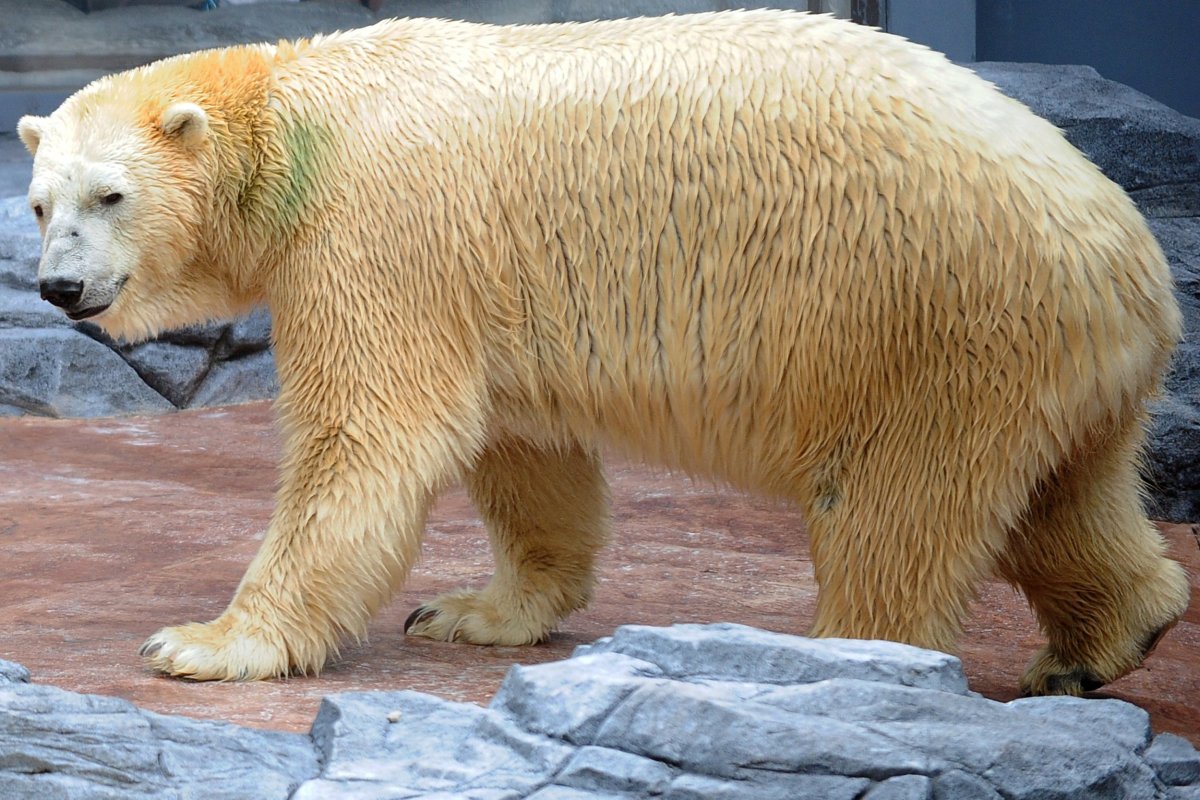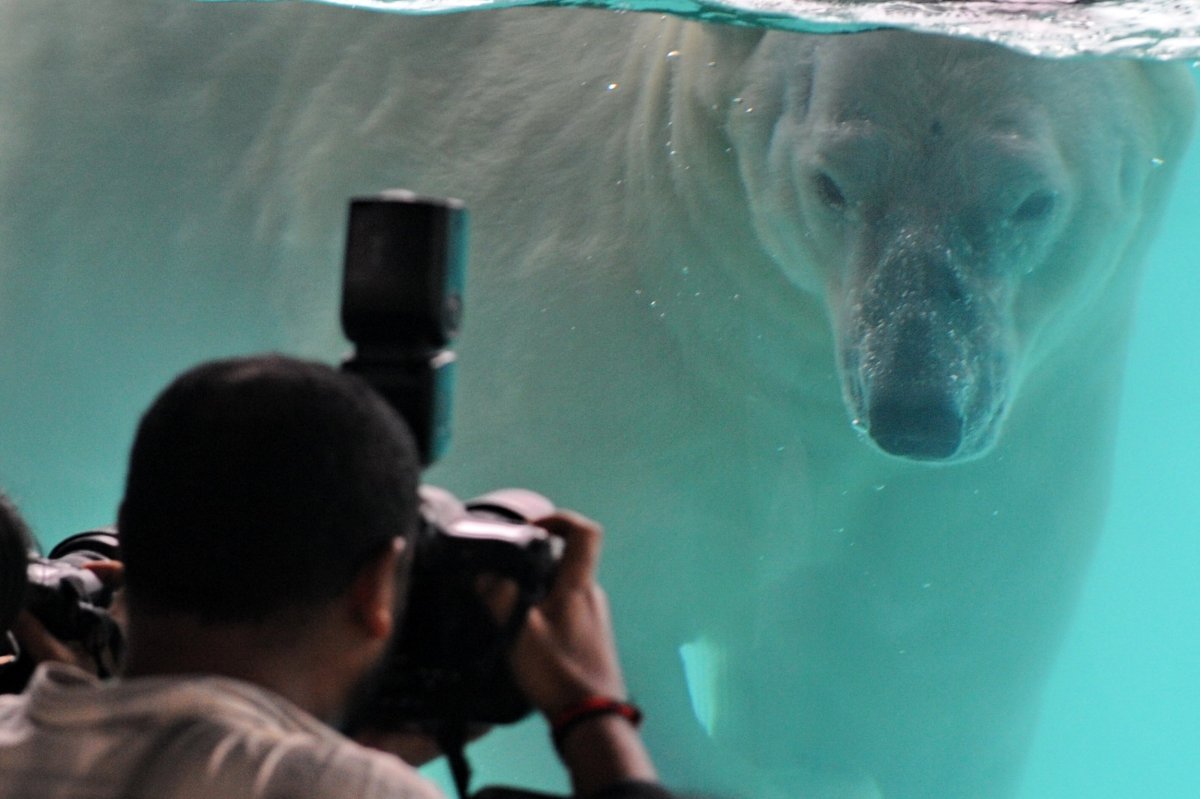The world's first and only polar bear to be born in the tropics has died in Singapore, ending the long and controversial story of the beloved animal.
Inuka, a male polar bear born in Singapore in 1990, succumbed to age-related ailments on Wednesday, Reuters reported.
At 27, Inuka—meaning "Silent Stalker" in Inuit—had been suffering from arthritis, dental issues and ear infections. The bear's limbs were also badly weakened, meaning he struggled to walk. Having outlived the average wild polar bear lifespan by 10 years, it is little surprise that time finally caught up to one of Singapore's most famous residents.
Following a health examination, the zoo said, "We have jointly made the difficult but necessary decision to not revive Inuka from anesthesia on humane grounds."

"As much as we would like to keep Inuka with us for as long as possible, our ultimate responsibility is his welfare," said Cheng Wen-haur, Wildlife Reserves Singapore's deputy chief executive officer and chief life sciences officer. He added that the team was aware that Inuka's health issues had seriously affected his quality of life, and suggested "the greater kindness would be to relieve him from prolonged suffering."
Inuka lived in a climate-controlled enclosure which attempted to mimic a frozen tundra environment to help him cope with Singapore's tropical heat. Sat close to the equator, the island city-state is warm all year round, rarely posting temperatures lower than 77 degrees. Inuka was the fourth polar bear to be housed at Singapore's zoo, the son of father Nanook and mother Sheba who were been brought to Singapore from Canada and Germany, respectively.
Though a popular attraction, Inuka became a lightning rod for animal activist and conservationist criticism, who argued that keeping an arctic animal in a tropical zoo was cruel. Opposition was magnified when Inuka and his mother, then still alive, began turning green due to algae in their fur. Though the zoo argued it was harmless, for critics it illustrated how unsuitable Singapore was for Inuka.
Writing for Newsweek in 2017, Ben Williamson—senior international media director of People for the Ethical Treatment of Animals—said captive polar bears are fast to develop abnormal and nuerotic behaviour in capvitity. Williamson wrote that some zoos have even resorted to giving bears anti-depressants to to curb their anxiety.

The species is built to survive extreme cold. In their natural Arctic habitat, polar bears must survive average winter temperatures as low as -29 degrees. Polar bears can walk up to 20 miles a day and are also strong swimmers. Animal rights groups believe that no artificial zoo habitat can account for such a lifestyle, and that to confine such nomadic animals to an enclosure is traumatic for them. After holding discussions on the welfare of its animals, the zoo announced in 2006 it would not bring in any new polar bears after Inuka.
Inuka had a reputation as an intelligent and fun resident, and would often make up his own games according to his keeper. Such activities included stacking tires, arranging food in parallel line and hiding his toothbrush. According to The Straits Times, Inuka loved to laze in the sun, giving him a nickname of "the sun bear."
A message on the zoo's website simply read, "The polar bear exhibit is closed. Goodbye Inuka, you'll always live in our hearts."
Uncommon Knowledge
Newsweek is committed to challenging conventional wisdom and finding connections in the search for common ground.
Newsweek is committed to challenging conventional wisdom and finding connections in the search for common ground.
About the writer
David Brennan is Newsweek's Diplomatic Correspondent covering world politics and conflicts from London with a focus on NATO, the European ... Read more
To read how Newsweek uses AI as a newsroom tool, Click here.








